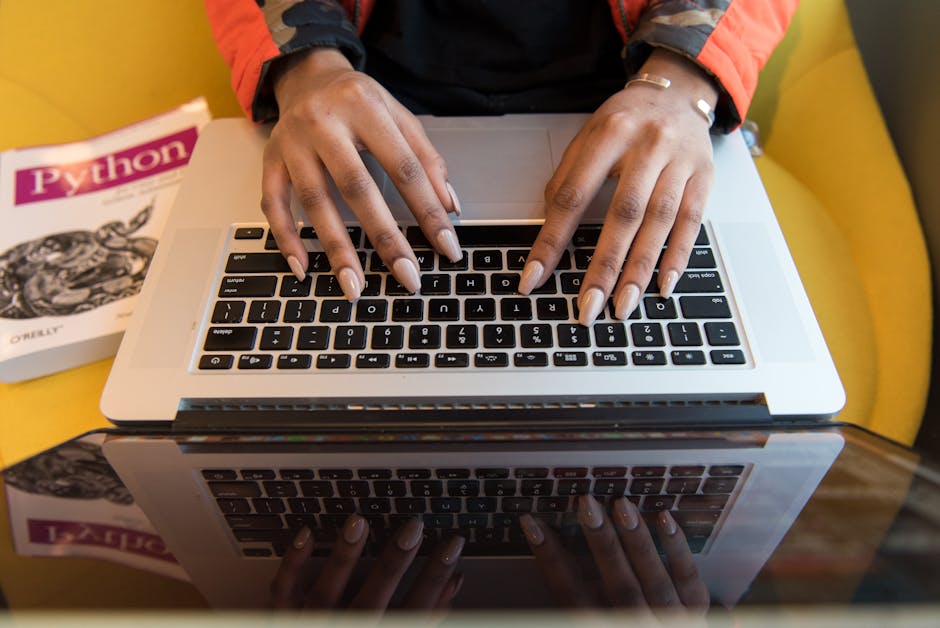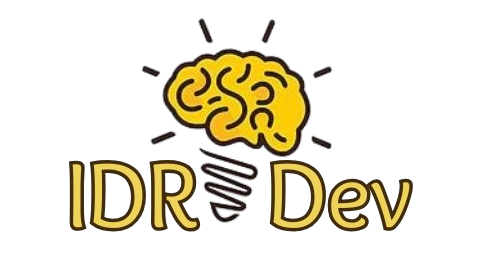Python Interview Questions PDF: Your Ultimate Prep Guide
Landing a Python developer role often hinges on acing the technical interview. A well-prepared candidate understands core Python concepts and can apply them to solve practical problems. This guide provides a comprehensive overview of common Python interview questions, offering a pathway to boost your confidence and improve your chances of success. We’ll explore essential topics, provide example questions, and offer valuable strategies to help you impress your interviewers. Let’s dive in and get you ready to shine!
Background: The Importance of Python Interviews

Python has become a dominant force in software development, powering everything from web applications and data science tools to machine learning algorithms and automation scripts. Consequently, skilled Python developers are in high demand. A Python interview assesses a candidate’s ability to not only write syntactically correct code but also to understand the underlying principles of the language and apply them effectively.
Why Python Skills are Crucial
Python’s versatility makes it valuable across various domains. Data scientists rely on Python libraries like Pandas and NumPy for data analysis and manipulation. Web developers utilize frameworks like Django and Flask to build robust web applications. Software engineers leverage Python for scripting, automation, and testing. A solid understanding of Python fundamentals is essential for anyone seeking a career in these areas.
What Interviewers Look For
Interviewers are not just looking for rote memorization. They want to see that you understand how Python works, can debug code, and can design solutions to real-world problems. They evaluate your problem-solving skills, your ability to explain your thought process, and your understanding of best practices.
Importance: Why Focus on Interview Preparation?

Effective interview preparation can be the difference between landing your dream job and facing repeated rejections. It’s not enough to simply know Python; you must be able to articulate your knowledge clearly and concisely, especially under pressure.
Boosting Your Confidence
Thorough preparation builds confidence. Knowing that you’ve tackled a wide range of questions and practiced your responses will alleviate anxiety and allow you to perform at your best. Confidence shines through and makes a positive impression on the interviewer.
Highlighting Your Strengths
Preparation allows you to identify your strengths and weaknesses. You can then focus on improving areas where you need the most work and strategically highlight your key skills during the interview. This ensures that you present yourself as the best possible candidate.
Understanding Common Interview Patterns
Many Python interviews follow a similar pattern, covering fundamental concepts, data structures, algorithms, and object-oriented programming. By familiarizing yourself with these patterns, you can anticipate the types of questions you’ll be asked and prepare effective answers.
Benefits: What You Gain from Using a Python Interview Questions PDF

A well-structured Python interview questions PDF offers several advantages. It provides a curated collection of relevant questions, saves you time researching, and allows for structured practice.
Structured Learning
A PDF format provides a linear, organized way to learn. You can easily progress through different topics, track your progress, and revisit specific sections as needed. The structured approach promotes efficient learning and retention.
Offline Accessibility
Unlike online resources, a PDF can be accessed offline. This is particularly useful when you’re traveling, in areas with limited internet access, or simply prefer to study without distractions. You can study anytime, anywhere.
Focused Content
A good PDF focuses specifically on Python interview questions, eliminating the need to sift through irrelevant information. This saves time and ensures that you’re concentrating on the most important material.
Steps: How to Effectively Use a Python Interview Questions PDF

Downloading a PDF is only the first step. To maximize its benefits, you need to use it strategically. Here’s a step-by-step guide:
Step 1: Download and Review the PDF
Start by downloading a reputable Python interview questions PDF. Quickly skim through the document to get an overview of the topics covered. Pay attention to the organization and the types of questions included.
Step 2: Focus on Fundamentals
Begin with the fundamental concepts:
- Data Types: Understand integers, floats, strings, lists, tuples, dictionaries, and sets.
- Control Flow: Master conditional statements (if, elif, else) and loops (for, while).
- Functions: Learn how to define functions, pass arguments, and return values.
Work through the questions related to these topics in the PDF. Try to answer them without looking at the solutions first.
Step 3: Tackle Data Structures and Algorithms
Once you’re comfortable with the fundamentals, move on to more complex topics:
- Data Structures: Understand how to use lists, dictionaries, sets, and queues effectively.
- Algorithms: Familiarize yourself with sorting algorithms (e.g., bubble sort, merge sort, quicksort), searching algorithms (e.g., binary search), and graph algorithms (e.g., depth-first search, breadth-first search).
Practice implementing these data structures and algorithms from scratch. The PDF should provide questions that test your understanding of these concepts.
Step 4: Explore Object-Oriented Programming (OOP)
OOP is a crucial aspect of Python. Understand the following concepts:
- Classes and Objects: Learn how to define classes, create objects, and access attributes and methods.
- Inheritance: Understand how to create subclasses that inherit properties from parent classes.
- Polymorphism: Learn how to use polymorphism to write more flexible and reusable code.
- Encapsulation: Understand how to protect data within a class by using private attributes and methods.
Work through the OOP questions in the PDF and practice designing classes and objects for different scenarios.
Step 5: Practice Coding Problems
The best way to prepare for a Python interview is to practice coding problems. The PDF should contain a variety of coding challenges that test your problem-solving skills. Try to solve these problems on your own, without looking at the solutions. If you get stuck, take a break and come back to it later. If you still can’t solve the problem, then study the solution and try to implement it yourself.
Step 6: Review and Refine
After working through the entire PDF, review the topics that you found most challenging. Refine your understanding of these concepts and practice more problems. Also, practice explaining your solutions clearly and concisely. This is an important skill for the interview.
Examples: Common Python Interview Questions

Here are some examples of the types of questions you might encounter in a Python interview, often found in interview preparation PDFs:
Example 1: String Manipulation
Question: Write a function to reverse a string in Python.
Answer:
def reverse_string(s):
return s[::-1]
Explanation: This uses string slicing with a step of -1 to efficiently reverse the string.
Example 2: List Comprehension
Question: Use list comprehension to create a list of squares of even numbers from 1 to 10.
Answer:
squares_of_evens = [x**2 for x in range(1, 11) if x % 2 == 0]
Explanation: This demonstrates the concise syntax of list comprehension for filtering and transforming data.
Example 3: Dictionary Operations
Question: Given two dictionaries, merge them into a single dictionary.
Answer:
def merge_dictionaries(dict1, dict2):
merged_dict = dict1.copy() # Create a copy to avoid modifying dict1
merged_dict.update(dict2)
return merged_dict
Explanation: The `update()` method efficiently merges the second dictionary into the first, handling overlapping keys.
Example 4: OOP – Class Definition
Question: Create a class called `Dog` with attributes `name` and `breed`. Include a method called `bark` that prints “Woof!”.
Answer:
class Dog:
def __init__(self, name, breed):
self.name = name
self.breed = breed
def bark(self):
print("Woof!")
Explanation: This demonstrates basic class definition, the `__init__` constructor for initializing attributes, and a simple method.
Example 5: Recursion
Question: Write a recursive function to calculate the factorial of a number.
Answer:
def factorial(n):
if n == 0:
return 1
else:
return n * factorial(n-1)
Explanation: This showcases a classic example of recursion, where the function calls itself with a smaller input until it reaches the base case.
Strategies: Tips for Answering Interview Questions Effectively

Beyond just knowing the answers, it’s crucial to present them effectively during the interview. Here are some strategies to keep in mind:
Understand the Question
Before you start answering, make sure you fully understand the question. If anything is unclear, don’t hesitate to ask for clarification. It’s better to ask for clarification than to answer the wrong question.
Think Out Loud
Interviewers want to understand your thought process. Explain how you’re approaching the problem, the assumptions you’re making, and the reasoning behind your choices. This gives them insight into your problem-solving skills.
Start with a High-Level Overview
Begin by providing a high-level overview of your approach. This helps the interviewer understand the overall strategy before you dive into the details. It also demonstrates that you have a clear understanding of the problem.
Write Clean and Readable Code
Your code should be well-formatted, easy to read, and properly commented. Use meaningful variable names and follow PEP 8 style guidelines. Clean code reflects professionalism and attention to detail.
Test Your Code
If possible, test your code with different inputs to ensure it works correctly. This demonstrates that you’re thorough and pay attention to edge cases. Mentioning potential edge cases even if you don’t have time to test them shows good awareness.
Communicate Clearly
Speak clearly and concisely. Avoid jargon or technical terms that the interviewer might not understand. Explain your solutions in a way that anyone can understand, even if they don’t have a technical background.
Challenges & Solutions: Addressing Common Interview Difficulties
Interviews can be challenging, but with preparation and the right mindset, you can overcome common difficulties.
Challenge: Blanking Out Under Pressure
Solution: Practice under simulated interview conditions. Ask a friend to interview you or record yourself answering questions. This will help you get used to the pressure and improve your ability to think on your feet. Deep breathing exercises can also help calm your nerves.
Challenge: Encountering Unfamiliar Questions
Solution: Don’t panic! Even experienced developers encounter questions they don’t know the answer to. Instead of saying “I don’t know,” try to break down the problem into smaller parts. Explain what you *do* know and how you would approach the problem if you had more time. This demonstrates your problem-solving skills and willingness to learn.
Challenge: Struggling to Explain Concepts Clearly
Solution: Practice explaining technical concepts to non-technical people. This will help you simplify your language and avoid jargon. Use analogies and real-world examples to illustrate your points.
Challenge: Imposter Syndrome
Solution: Recognize that everyone experiences self-doubt at times. Focus on your accomplishments and the skills you’ve developed. Remind yourself that you’ve earned the interview and that you have valuable contributions to make.
FAQ: Common Questions About Python Interviews
- Q: What are the most important Python concepts to know for an interview?
- A: Data types, control flow, functions, data structures (lists, dictionaries, sets), OOP, and common algorithms.
- Q: Should I memorize code examples?
- A: No. Focus on understanding the underlying concepts and being able to apply them. Memorization is less important than problem-solving ability.
- Q: How important is it to know specific Python libraries like Django or Flask?
- A: It depends on the role. For web development positions, familiarity with relevant frameworks is crucial. For data science roles, knowledge of Pandas, NumPy, and Scikit-learn is important.
- Q: What if I don’t know the answer to a question?
- A: Be honest, but don’t simply say “I don’t know.” Explain your thought process and how you would approach the problem. Show your willingness to learn.
- Q: How much time should I spend preparing for a Python interview?
- A: It depends on your experience level. Allocate at least a few weeks to review concepts, practice coding problems, and prepare your answers.
- Q: What’s the best way to practice coding problems?
- A: Use online platforms like LeetCode, HackerRank, or CodeSignal. Solve problems regularly and track your progress. Focus on understanding the solutions, not just memorizing them.
- Q: How can I improve my communication skills for the interview?
- A: Practice explaining technical concepts to non-technical people. Record yourself answering questions and review your performance. Ask a friend to conduct a mock interview.
Conclusion: Ace Your Interview and Land Your Dream Job!
Preparing for a Python interview requires dedication and a strategic approach. By utilizing a comprehensive Python interview questions PDF, focusing on fundamental concepts, practicing coding problems, and honing your communication skills, you can significantly increase your chances of success. Remember to stay calm, be confident, and let your passion for Python shine through. Now go out there and ace that interview! Download a Python interview questions PDF today and start your journey towards your dream job!
Ready to take the next step? Download our recommended Python interview questions PDF now and begin your preparation. Good luck!

